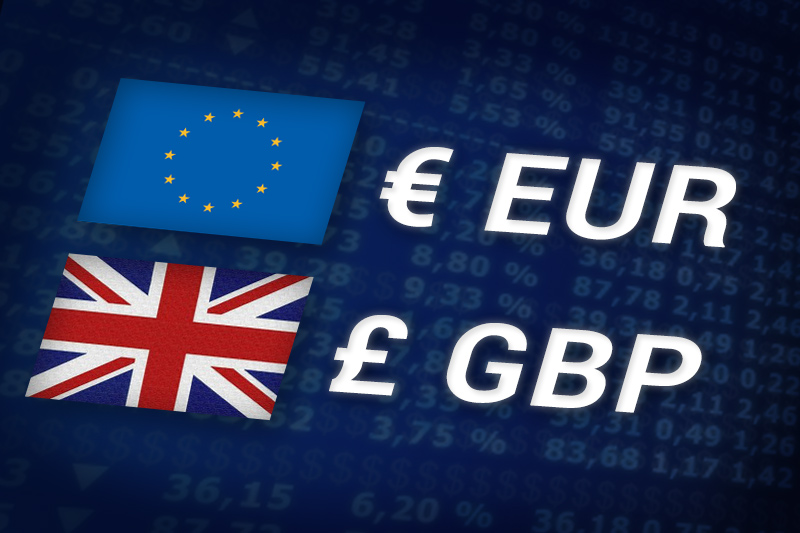Investing.com - The euro edged higher against the pound on Tuesday, ahead of a liquidity boosting operation by the European Central Bank which was expected to boost risk appetite, while investors eyed an industry report on U.K. retail sales.
EUR/GBP hit 0.8488 during European morning trade, the session high; the pair subsequently consolidated at 0.8476, easing up 0.12%.
The pair was likely to find support at 0.8440, Monday’s low and resistance at 0.8505, last Friday’s high and an 11-week high.
Market sentiment was boosted as markets looked ahead to Wednesday's launch of the ECB’s second three-year long-term refinancing operation, after a similar liquidity injection in December eased pressure on peripheral euro zone bond markets.
On Monday, Germany’s parliament approved the euro zone’s second bailout for Greece by a comfortable margin.
Ahead of the vote, German Chancellor Angela Merkel warned that that if the deal was not approved the risks to the European Union and the global economy would be “incalculable”.
The euro remained supported despite Monday’s announcement by ratings agency Standard & Poor’s that it had cut Greece’s long term credit rating to 'selective default' after the country embarked on a debt swap deal with its private creditors.
The euro was higher against the U.S. dollar and the yen, with EUR/USD adding 0.21% to hit 1.3425 and EUR/JPY climbing 0.16% to hit 108.15.
Later in the day, the Confederation of British Industry was to produce data on U.K. retail sales, while the U.S. was to produce official data on durable goods orders, as well as reports on house price inflation and consumer confidence.
EUR/GBP hit 0.8488 during European morning trade, the session high; the pair subsequently consolidated at 0.8476, easing up 0.12%.
The pair was likely to find support at 0.8440, Monday’s low and resistance at 0.8505, last Friday’s high and an 11-week high.
Market sentiment was boosted as markets looked ahead to Wednesday's launch of the ECB’s second three-year long-term refinancing operation, after a similar liquidity injection in December eased pressure on peripheral euro zone bond markets.
On Monday, Germany’s parliament approved the euro zone’s second bailout for Greece by a comfortable margin.
Ahead of the vote, German Chancellor Angela Merkel warned that that if the deal was not approved the risks to the European Union and the global economy would be “incalculable”.
The euro remained supported despite Monday’s announcement by ratings agency Standard & Poor’s that it had cut Greece’s long term credit rating to 'selective default' after the country embarked on a debt swap deal with its private creditors.
The euro was higher against the U.S. dollar and the yen, with EUR/USD adding 0.21% to hit 1.3425 and EUR/JPY climbing 0.16% to hit 108.15.
Later in the day, the Confederation of British Industry was to produce data on U.K. retail sales, while the U.S. was to produce official data on durable goods orders, as well as reports on house price inflation and consumer confidence.
